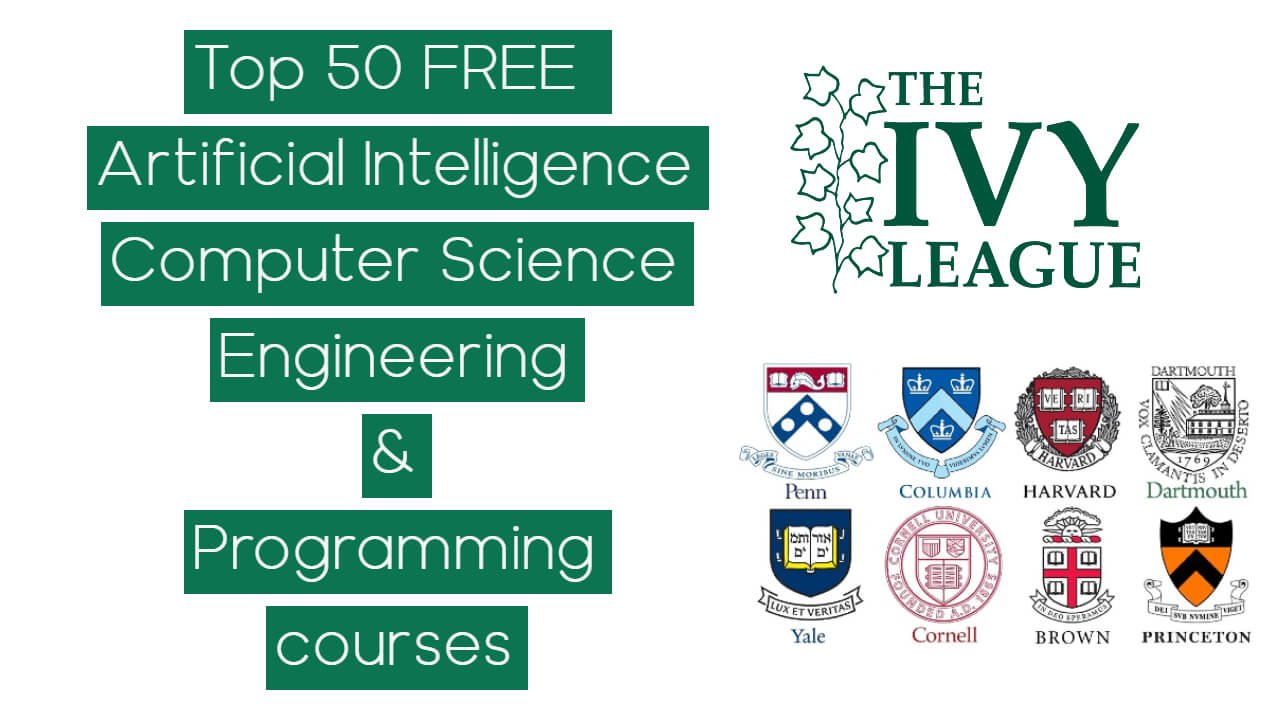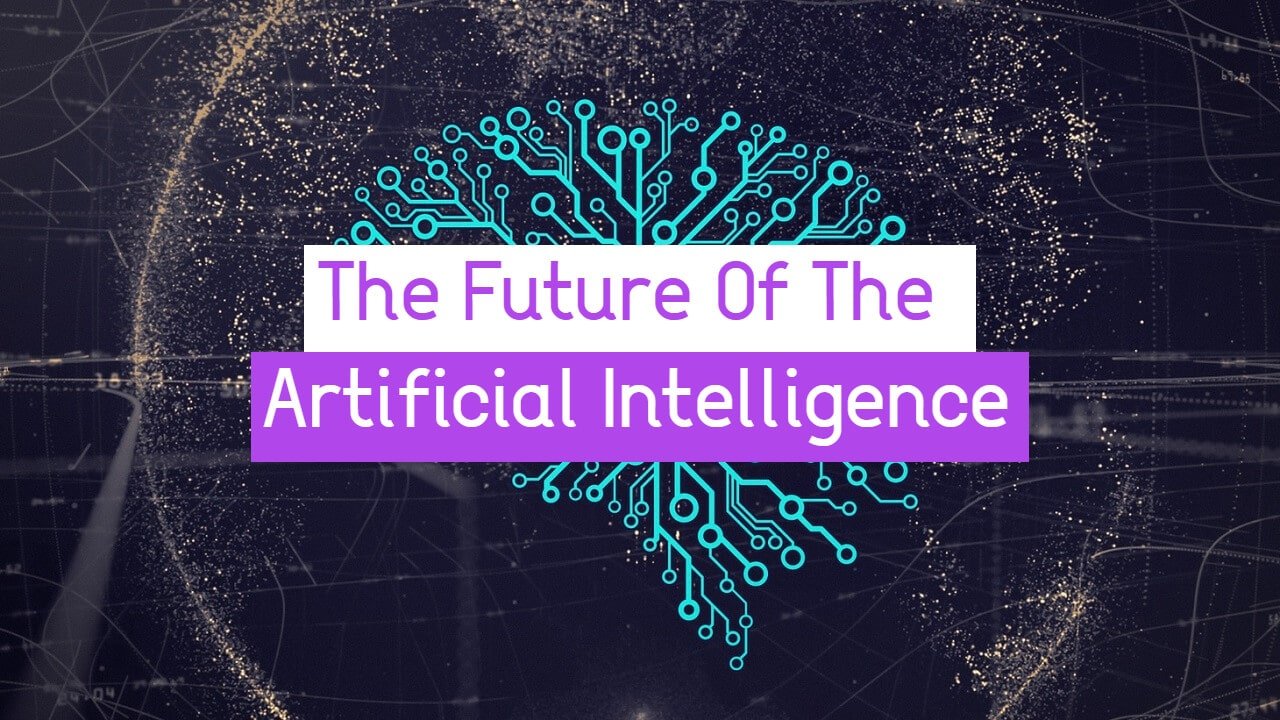Most of the Machine Learning, Deep Learning, Computer Vision, NLP job positions, or in general every Artificial Intelligence (AI) job position requires you to have at least a bachelor’s degree in Computer Science, Electrical Engineering, or some similar field.
If your degree comes from some of the world’s best universities than your chances might be higher in beating the competition on your job interview.
But looking realistically, not most of the people can afford to go to the top universities in the world simply because not most of us are geniuses and don’t have thousands of dollars, or come from some poor country (like we do).
No with the high demand of skilled professionals from these fields, there are exceptions being made, so we can see that people who don’t come from these fields, are learning and adjusting themselves in order to get that paycheck.
In this article, we are going to list some of the free Artificial Intelligence courses that come from Harvard University, MIT University, and Stanford University that anyone can attend, no matter where they live.
Before you read these free Artificial Intelligence courses, you may also be interested in reading the top 10 Artificial Intelligence YouTube channels in 2020 and the top 15 powerful short Artificial Intelligence books.
Also, if you are interested in Machine Learning and want to learn it more, our blog and these top 10 books you should read before you dive into Machine Learning will help you the most.
Because there were a lot of people interested in free courses, we have another great article about how to gain Computer Science education from MIT University.
If you want to read and learn more, here are top 10 cheap Artificial Intelligence books you should read.
The best FREE online Artificial Intelligence courses:
1. CS50’s Introduction to Artificial Intelligence with Python (Harvard)
This course comes from Harvard and explores the concepts and algorithms at the foundation of modern artificial intelligence, diving into the ideas that give rise to technologies like game-playing engines, handwriting recognition, and machine translation.
Through hands-on projects, students gain exposure to the theory behind graph search algorithms, classification, optimization, reinforcement learning, and other topics in artificial intelligence and machine learning as they incorporate them into their own Python programs.
The course is already attended by more than 180,000 people.
2. Data Science: Machine Learning (Harvard)
This course is from Harvard and it will help you will learn popular machine learning algorithms, principal component analysis, and regularization by building a movie recommendation system.
You will learn about training data, and how to use a set of data to discover potentially predictive relationships. As you build the movie recommendation system, you will learn how to train algorithms using training data so you can predict the outcome for future datasets. You will also learn about overtraining and techniques to avoid it such as cross-validation.
Harvard course that is being taught through projects, mentored by some of the world’s best professors?
SIGN ME UP !!! You don’t want to miss out on this one.
3. Artificial Intelligence (MIT)
This course comes from MIT and introduces students to the basic knowledge representation, problem-solving, and learning methods of artificial intelligence. After this course, the students should be able to develop intelligence, understand the role of knowledge representation, and appreciate the role of problem-solving, vision, and language in understanding human intelligence from a computational perspective.
As most of the courses in this list that come from MIT, this course has tons of PDF tutorials with summed up materials, video lectures from the classes taught by MIT’s best professors as well as tons of other references to some of the best books from these fields.
4. Introduction to Computational Thinking and Data Science (MIT)
This is an MIT course and is great for students with little or no programming experience. It aims to provide students with an understanding of the role computation can play in solving problems and to help students, regardless of their major, feel justifiably confident of their ability to write small programs that allow them to accomplish useful goals. The class uses the Python 3.5 programming language.
This course has also tons of tutorials and video lectures.
5. Machine Learning (MIT)
This is an MIT course and it contains an introduction to machine learning which gives an overview of many concepts, techniques, and algorithms in machine learning, beginning with topics such as classification and linear regression and ending up with more recent topics such as boosting, support vector machines, hidden Markov models, and Bayesian networks.
The course will give the student the basic ideas and intuition behind modern machine learning methods as well as a bit more formal understanding of how, why, and when they work.
It is probably one of the best courses on Machine Learning because as well as the others, it has its materials, and assignments and it projects so not only you will learn, but you have to experience the MIT student life.
6. Matrix Methods in Data Analysis, Signal Processing, and Machine Learning (MIT)
This MIT course focuses on Linear algebra’s concepts which are key for understanding and creating machine learning algorithms, especially as applied to deep learning and neural networks.
The course is equipped with video lectures and tutorials as well as with assignments and projects.
7. Machine Vision (MIT)
This is the MIT course for Machine Vision (Computer Vision) and provides an intensive introduction to the process of generating a symbolic description of an environment from an image. Lectures describe the physics of image formation, motion vision, and recovering shapes from shading.
Binary image processing and filtering are presented as preprocessing steps. Applications to robotics and intelligent machine interaction are discussed.
We have some interesting articles and projects on Machine Vision that you should check out.
8. Advanced Natural Language Processing (MIT)
This MIT course is an introduction to natural language processing (NLP). It covers syntactic, semantic, and discourse processing models, emphasizing machine learning or corpus-based methods and algorithms. It also covers applications of these methods and models in syntactic parsing, information extraction, statistical machine translation, dialogue systems, and summarization.
If you are interested in NLP, this course is the best place to start with it.
9. Statistical Learning (Stanford)
This Stanford class is an introductory-level course in supervised learning, with a focus on regression and classification methods. The syllabus includes: linear and polynomial regression, logistic regression and linear discriminant analysis, cross-validation and the bootstrap, model selection and regularization methods, nonlinear models, splines and generalized additive models, tree-based methods, random forests and boosting, support vector machines. Some unsupervised learning methods are discussed: principal components and clustering (k-means and hierarchical).
10. Mining Massive Data Sets (Stanford)
This is a Stanford course that introduces the students to modern distributed file systems and MapReduce, including what distinguishes good MapReduce algorithms from good algorithms in general.
The rest of the course is devoted to algorithms for extracting models and information from large datasets. Participants will learn how Google’s PageRank algorithm models the importance of Web pages and some of the many extensions that have been used for a variety of purposes.
Conclusion
These ones were some of our favorite free courses from the best universities in the world that have the highest quality AI materials. Obviously there are tons of other courses from other universities like UCLA, CALTECH, University of Pennsylvania, University of Berkeley, etc.
These universities also have free courses, and most of them you can find on the edX platform, so if you are interested in something other than what you’ve seen in this article, check out edX.
At the end of the day the course, the university, the book is less important than your determination and will to learn something new.
So our suggestion is to choose an area that inspires you, it does not have to be something from the courses we provided because it does not mean that if these ones are the best for us are going to the best for you.
If you are not found of courses way of teaching then you can check the materials that we provide on our platform. These materials are short and straight to the point, usually joined with practical Python implementation.
Like with every post we do, we encourage you to continue learning, trying and creating. Check out our Artificial Intelligence (AI) page to read more articles related to this.






